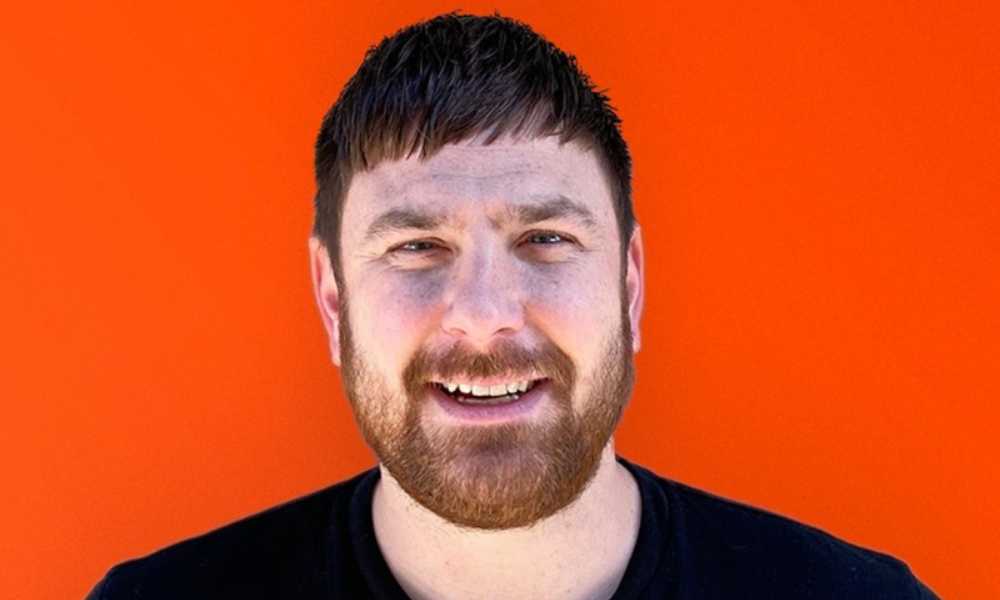
Rob Stone of CHEP Network discusses importance of resilience coupled with self-care

Coming from a sport’s-mad world, Rob Stone has always believed that if you want success, you have to put in the hours. In a previous life, Stone had the honour of playing with the Melbourne Tigers - Australia's oldest men's professional basketball team.
Now, as CHRO at Sydney-based media giant CHEP Network, he’s seeing that commitment to excellence come to fruition in the corporate world.
“I’ve been so lucky throughout my career to have amazing and inspirational leaders that have made me the leader that I am today,” Stone tells HRD. “I have evolved a lot over the years, which I think naturally comes with the ability to grow the self-confidence and awareness to drop any personal agendas at the door. What I mean by this is that, earlier in my career, I was so focused on trying to take on as much work as possible to ensure that I was ‘across everything’.”
What Stone quickly learnt was that it’s not physically and mentally feasible to operate like this and it actually creates an environment that doesn’t allow for growth, inspiration, and rapid development for team members.
“Having come from a sports background, this was a big turning point for me personally, as in that world, it’s drilled in from a very young age that if you want success, it’s all about applying a mindset of literally outworking everyone else,” he adds.
A turning point in Stone’s career came when a past CEO and mentor sat him down and offered sage advice: “We employ you to give us a competitive advantage by thinking differently to others. We don’t hire you to manage a process or tick tasks off a list; that’s not how you make transformation or impactful outputs.”
At the time, Stone remembers thinking the more work he delivers, the more value he’ll be to the business.
“However, I quickly learnt that being laser focused on doing the things that will actually help to grow our business became really clear,” adds Stone. “So many people talk about hiring people that are better than them and to get out of their way; however, to do this, you have to get to a place where you have the confidence within yourself to put the business first above anything else. This isn’t as easy as it sounds and it takes a lot of self-development and work.”
And while a lot of HR leaders always encourage the importance of self-care, it’s rare they practice what they preach. According to research from Sage, 95% of HR leaders find working in the sector to be overwhelming – namely because of the excessive workload. What’s more, 84% say they regularly feel stressed and 81% say they’re frequently burned out.
“Once you’re able to set a direction and empower your teams to run at it, you will see instant results,” advises Stone. “For me, it’s important for continual self-development - whether that’s through traditional L&D, coaching or spending time with past CEO’s that continue to play a mentor role to me. This keeps me grounded, it realigns and resets me.”
Looking at the creative sector at large, the industry is facing its own highly unique set of challenges. However, as Stone tells HRD, at CHEP Network, they feel very fortunate with the teams they have.
“We’re really lucky to work within the creative industries,” he explains. “There’re not many industries in the world where you’re genuinely able to impact society in a positive way at the scale we have exposure to. This is something that we never take for granted and it’s the tone that sets our ‘culture’.
“The challenges that we face is that our world is constantly changing at pace and it’s important that we’re also evolving and staying ahead of trends. From a talent perspective, we’re continuing to see a move from ‘T shaped’ to ‘V shaped’ employees, meaning that we’re needing deeper capabilities and experience across multiple skill sets.
“Also, I think that in general most organisations are being challenged to increase efficiencies and remove duplication. HR leaders will be faced with delivering OD strategies with what I believe will be a much greater blended workforce in relation to fixed, flex and borrowed staffing.”
And, as we move further on through 2024, Stone says he’s seeing emerging trends set to dominate the sector for years to come.
“It’s been coming for a while now; however, we can’t ignore AI and machine learning,” he tells HRD. “This is going to be the biggest change that we’re going to see not only in HR [but] the whole workforce in general. Businesses that get ahead of this are going to be the ones that grow at pace. AI should be seen as a growth driver that allows employees to become more strategically focused and deliver higher value and ultimately higher job satisfaction.”
For Stone, HR need to ensure that they’re identifying roles and skills that could potentially become future proof moving forward with the rapid changes of new skills & departments.
“Focus on developing and up skilling these employees now. AI shouldn’t be seen as a cost saving exercise; it should be seen as an opportunity to elevate your staff to lean into higher valued human centric work that AI won’t be able to replace. At CHEP we’re already shifting out focus to identifying roles within our agency that will be impacted by AI,” he says.
“We see this as an opportunity to remove a lot of the administrative tasks of our roles, which will allow us to elevate and grow our talent into more strategic and partnership roles.”